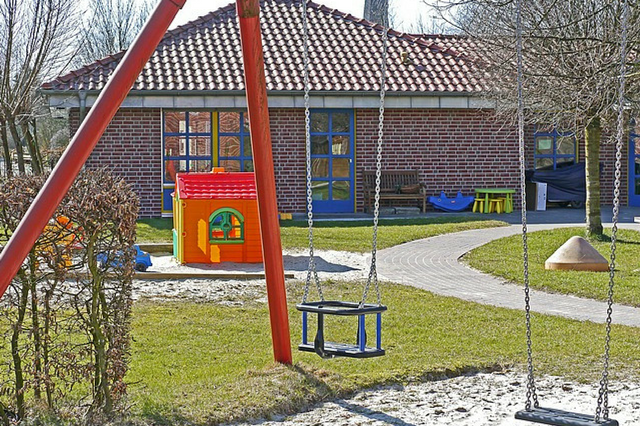Many parents choose daycare for their kids because it offers a structured environment for their kids, with plenty of opportunities for socialization.
A good daycare environment can help support children’s learning when facilitated by a skilled ECE (Early Childhood Education) professional, who understands the developmental and educational needs of a young child. At the very least, the child who is provided with a good mix of activities which are learning-based is better off than a kid stuck in front of a TV at home with grandparents for the day. Additionally, the parents can benefit from a new support network of other parents and professionals.
Although there are so many benefits to daycare, many parents wish they could provide care at home for their kids, or that at least they had more assurance that their children were being well taken care of. Parents may have concerns about how crowded a daycare is, how little specialized attention their child may get, their exposure to germs and poor behaviour of other kids, and the general shock of being away from the comforts of home and family for long days on end.
Additionally, there are many parents who know they need extra attention for their children, who are unable to find that in daycares.
This includes families who are new to Canada and are trying to learn English as a Second Language.
Although daycares have the possibility of providing excellent experiences for ESL students, this is not always the case in Vancouver because many daycares do not provide the English experience that students need in order to learn. Children’s main goal at daycares are to play and to learn social skills, and this is often how daycares are structured.
Even in a specific type of care such as Montessori, which is more structured around learning objectives in language, math and science, children may lack the opportunities to speak in English throughout the day with their Chinese-speaking peers. In other words, even with highly-skilled teachers and a school environment geared towards learning, ESL students are not getting enough English practice because of the sheer numbers of Chinese-speaking kids in daycares in Vancouver.
Children ages 2-5 are forming the foundations across all areas of development: social, linguistic, physical, emotional, mathematical, and practical.
Daycares try to provide the best support for children across all areas, but there is an assumption that is made when it comes to Language learning. The assumption is that when children are learning a new language other than what they learn at home, that the daycare is the place where they learn it.
Because language learning is so foundational to cognitive and social development, daycares are designed to provide support to families of children learning a second language. The problem is, what if they are not given opportunities to hear and use the second language during the day? Daycare teachers cannot support opportunities for learning which are not being taken, and since the child is given opportunities to play and learn with others in groups, he or she will automatically choose to speak in their first language if given the chance. And this happens all too often in daycares in Vancouver.
Early childhood professionals know that their jobs are to provide a bridge between their students’ experiences at home, and what happens in the classroom. Therefore, communicating regularly with families about the child is essential. Oftentimes, however, daycare teachers must rely on the help of a translator. When the translator is not a regular appearance at the school, this can prove to be challenging.
But what is the alternative?
It is essential that children who are learning English are provided with appropriate language learning opportunities: opportunities which are social, fun and exciting, where immersion in a warm, accepting English environment are all a part of the package. Children should therefore have English learning opportunities with Early Childhood Education teachers. Additionally, parents should have the ability to discuss their child’s progress with the teacher on a regular basis.
Little Mountain Learning Academy offers Early Literacy Program that aims to help students build a strong English Language foundation at an early age in order to achieve better academic success in the future. Please click here to learn more about this program.



 Expectations in an English Language Arts Class
Expectations in an English Language Arts Class